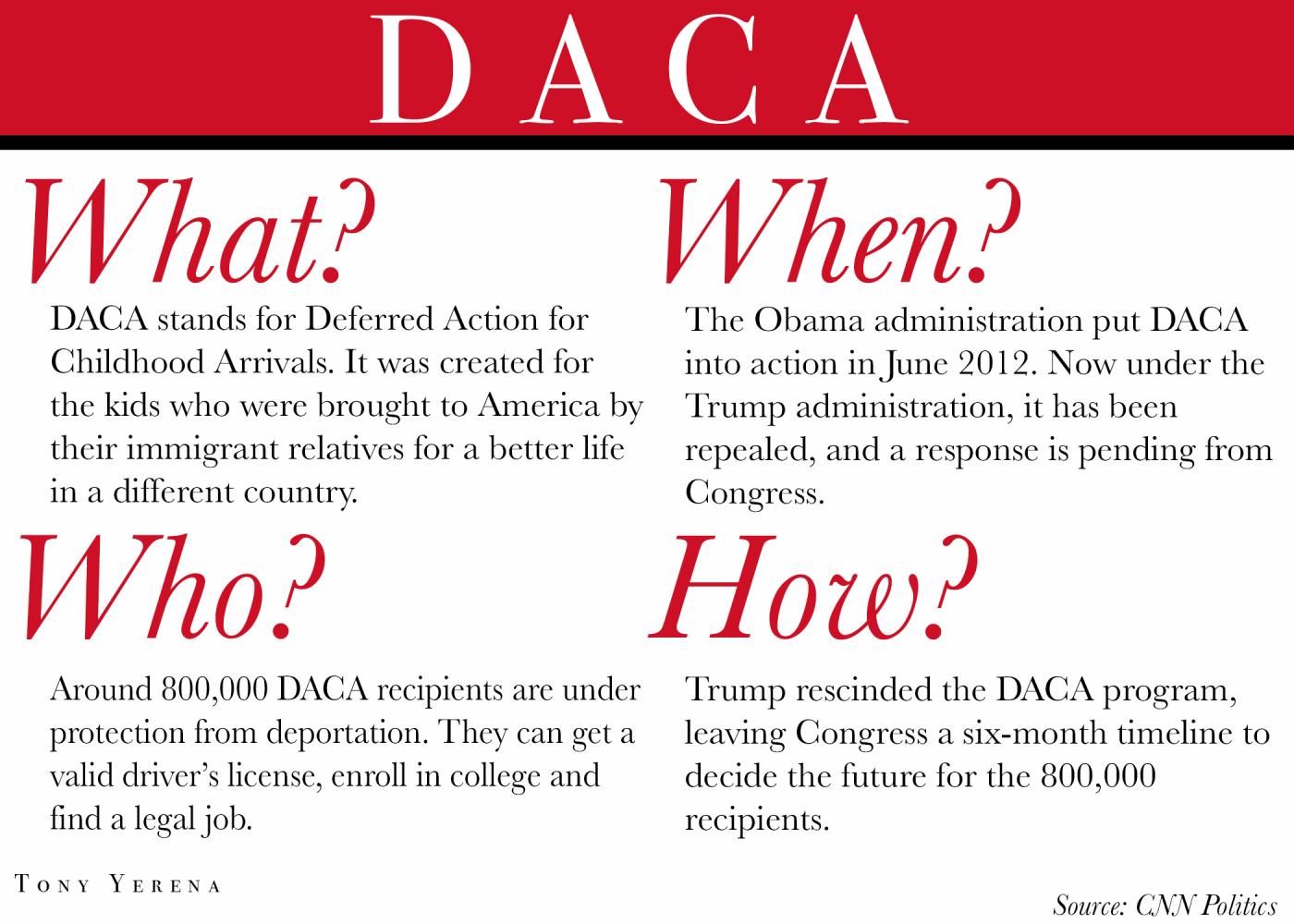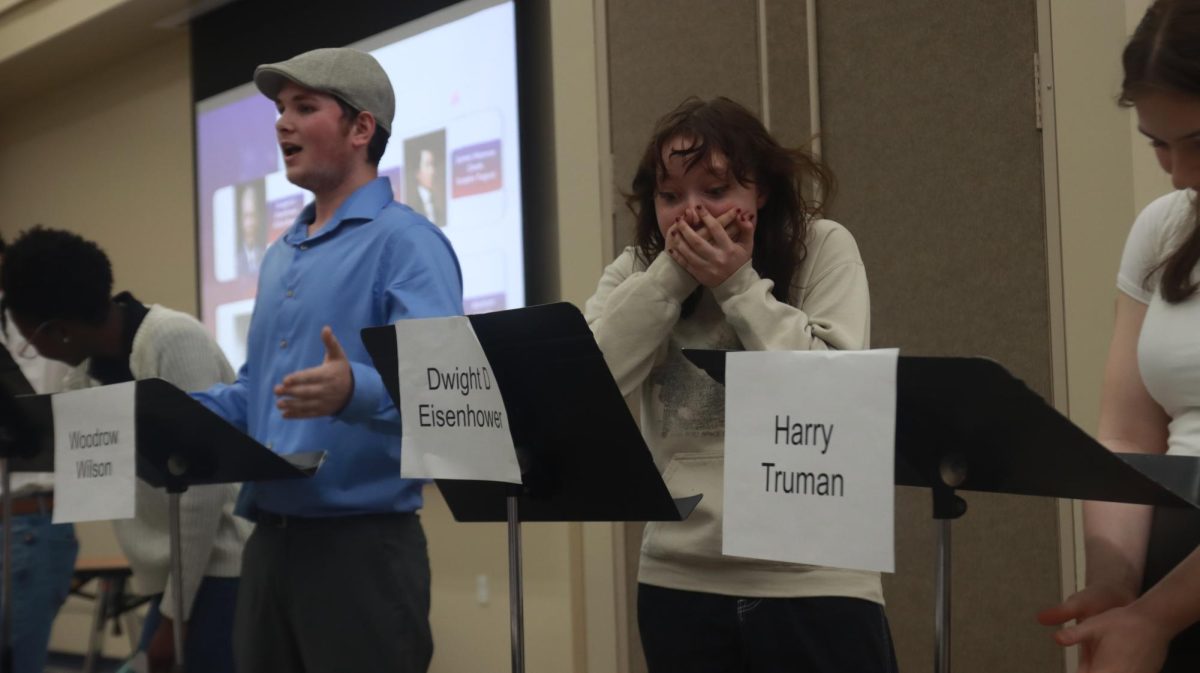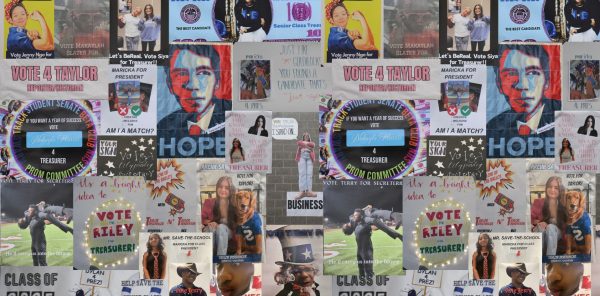What is DACA and What Happens Next?
October 10, 2017

Design by
Over the course of its five-year history, Deferred Action for Childhood Arrivals (DACA) has given approximately 800,000 undocumented immigrants a chance to achieve the American dream by allowing applicants to live and work without fear of deportation.
After several failed attempts in Congress to pass a law to protect unauthorized immigrants, the Obama administration established the policy through executive order in June 2012.
In early September the Trump administration promised an “orderly, lawful wind down” of DACA. Trump delayed the rescission, giving Congress six months to devise a legislative solution.
Who are the Dreamers?
Those protected under DACA are referred to as “Dreamers.” To qualify, applicants must have arrived in the U.S. before age 16 and have lived there continuously since 2007. They must have been younger than 31 on July 15, 2012, when DACA began. DACA applicants must also be attending school, have a high school diploma or be a veteran, and have a clean criminal record.
How does DACA benefit the Dreamers?
Results from a 2017 Center of American Progress survey concluded that 97 percent of applicants are currently employed or in school. DACA has had a positive impact on wages. The average hourly wage of applicants has raised 69 percent since DACA came into effect, rising from $10.29 per hour to $17.46 per hour. Among recipients 25 and older, their average annual earning is $41,621. These higher earnings do not only benefit the families of DACA applicants, but also tax revenues and economic growth as a whole.
What will happen to the Dreamers?
New DACA applicants will no longer be accepted. For those currently part of the program, their legal status, work permits and right to attend college will be revoked March 2018. Those with work permits expiring between Sept. 5, 2017 and March 5, 2018 will be allowed to apply for renewal by Oct. 5.
Source: Undocumented Student Program at Berkeley
Source: Georgetown Law
Source: The Guardian
Source: Center of American Progress















